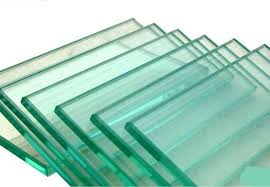মানোতামান্ টা
মান্ (Assamese) [ Roman: man]
Contributed by: Partha P Sarmah on 2008-11-23
English: abide, adhere, comply, conform, follow, obey,
Assamese: অনুপাল্, অৱলম্বন কৰ্, পালন কৰ্, মানি চল্, মান্,
Bodo: मानि,
Mising: bu:set,
Khasi: bud, dambit, kohnguh, pyndem,
Garo: apsan dakata, dongkama, katta ra.a,
Meeteilon: haiba inba,
Mizo (Lushai): cham, cheng,
Karbi: kimeng,
Dimasa: grao la, mani,
Nepali: पालन गर्नु, पालना,
Tiwa: nol,
Deori: চ্চু-কিনাত, পালি, লাজিয়াঁন
Contributed by: Probodh Borah (প্ৰবোধ বৰা) on 2010-08-28
English: accede, accord, acquiesce, agree, assent, concede, concur, stand,
Assamese: একমত হ, গড় খা, থিৰ হ, মান্, মান্তি হ, মূৰ জোকাৰ্, সন্মত হ, সন্মতি জনা, সন্মতি দে, সন্মতি প্ৰকাশ কৰ্, সহমত হ, সেও মান, সৈমান হ, ৰাজী হ,
Bodo: गसं, मदत होनाय, राजि जानाय, सिमान जानाय, सिमान लानाय, होनाय,
Mising: aiminsu,
Khasi: aiti, kohnguh, mynjur, shah,
Garo: ka`monggrika, melia, namnikpaa, skatang,
Nagamese: monjur,
Dimasa: graoma-giri garosa-giri, graosi jalai, jajao, jajaolai,
Hindi: अधिमिलन, खड़े, मान लेना, सहमत होना,
Nepali: अधिमिलन, सहमत हुनु
c. Proper Adj.: agreed, একমত, মান্তি, সন্মত, সহমত...
মান্ (Tai) [ Roman: man]
Contributed by: Anjali Sonowal on 2008-10-20
English: he,
Assamese: তেওঁ, তেৰা, সি,
Bodo: बियो,
Khasi: u,
Garo: bia,
Meeteilon: mahak, Mahak(Nupa),
Bishnupriya Manipuri: তা,
Karbi: alang,
Kok-Borok: Bo,
Nagamese: tai,
Dimasa: bu,
Ao: pa,
Tai: মান্,
Hindi: वह,
Bangla: ইনিsyl , উনি, এইনsyl , ও, তিনি, সে, হেcb syl , হেইনsyl ,
Deori: বা,
Hajong: অই
Contributed by: Anjali Sonowal on 2009-04-10
English: it,
Assamese: ই, ইয়াক, এওঁক,
Bodo: बे, बै,
Garo: ia,
Kok-Borok: Obo,
Nagamese: eito, ettu,
Tai: মান্, মুন,
Hindi: यह
Contributed by: Anjali Sonowal on 2008-10-20
English: mirror,
Assamese: আইনা, আচচি bo , আত্মাদৰ্শ, আদৰ্শিকা, আৰ্চী, কৰ্কৰ, চিঁচা, ছায়াগ্ৰহ, ত্ৰিপটু, দাপোণ, দাপোন, দৰ্পণ, মণ্ডলক, মন্দৰ, মুকুৰ, মুখচা,
Bodo: आयना, आरसि,
Mising: arsi,
Garo: Aaina, janera,
Meeteilon: mingchel, mingsel,
Karbi: luji,
Nagamese: aina, darpon, dorpon,
Dimasa: daugari, derphnai,
Tai: কিৱ, মান্,
Hindi: दर्पन,
Bangla: আয়না,
Nepali: ऐना, दर्पण, प्रतिफलक
Contributed by: Anjali Sonowal on 2008-10-20
মান্ (Assamese) [ Roman: man]
Contributed by: Partha P Sarmah on 2008-11-23
1. (Verb-Trans.) to do what is ordered/commanded to do by some authority বয়স বা পদমৰ্য্যদাত জ্যেষ্ঠ কোনো লোকে কৰিবলৈ কোৱা আৰু দিহা দিয়া মতে কাম কৰ্
Assamese: অনুপাল্, অৱলম্বন কৰ্, পালন কৰ্, মানি চল্, মান্,
Bodo: मानि,
Mising: bu:set,
Khasi: bud, dambit, kohnguh, pyndem,
Garo: apsan dakata, dongkama, katta ra.a,
Meeteilon: haiba inba,
Mizo (Lushai): cham, cheng,
Karbi: kimeng,
Dimasa: grao la, mani,
Nepali: पालन गर्नु, पालना,
Tiwa: nol,
Deori: চ্চু-কিনাত, পালি, লাজিয়াঁন
Contributed by: Probodh Borah (প্ৰবোধ বৰা) on 2010-08-28
2. (Verb-Trans.) To come into or be in accord, as of opinion. কোনো বিষয় সম্পৰ্কে সহমতত উপনীত হ।
Assamese: একমত হ, গড় খা, থিৰ হ, মান্, মান্তি হ, মূৰ জোকাৰ্, সন্মত হ, সন্মতি জনা, সন্মতি দে, সন্মতি প্ৰকাশ কৰ্, সহমত হ, সেও মান, সৈমান হ, ৰাজী হ,
Bodo: गसं, मदत होनाय, राजि जानाय, सिमान जानाय, सिमान लानाय, होनाय,
Mising: aiminsu,
Khasi: aiti, kohnguh, mynjur, shah,
Garo: ka`monggrika, melia, namnikpaa, skatang,
Nagamese: monjur,
Dimasa: graoma-giri garosa-giri, graosi jalai, jajao, jajaolai,
Hindi: अधिमिलन, खड़े, मान लेना, सहमत होना,
Nepali: अधिमिलन, सहमत हुनु
Antonyms:
a. Verb-Trans.: altercate, argue, disagree, dispute, quarrel...Different POS:
b. Abstract Noun: agreement, deal, treaty, কৰাৰ, চুক্তি...c. Proper Adj.: agreed, একমত, মান্তি, সন্মত, সহমত...
মান্ (Tai) [ Roman: man]
Contributed by: Anjali Sonowal on 2008-10-20
3. (Pronoun-Masculine) the male person or animal being discussed or last mentioned. আলোচিত বা পূৰ্বে-উল্লেখিত মতা মানুহ বা জন্তু।
Assamese: তেওঁ, তেৰা, সি,
Bodo: बियो,
Khasi: u,
Garo: bia,
Meeteilon: mahak, Mahak(Nupa),
Bishnupriya Manipuri: তা,
Karbi: alang,
Kok-Borok: Bo,
Nagamese: tai,
Dimasa: bu,
Ao: pa,
Tai: মান্,
Hindi: वह,
Bangla: ইনিsyl , উনি, এইনsyl , ও, তিনি, সে, হেcb syl , হেইনsyl ,
Deori: বা,
Hajong: অই
Different POS:
a. Pronoun-Masculine: his, তাহান্ত, তাৰ, তেওঁৰ, তেখেতৰ...Higher Magnitude:
b. Pronoun-Common: তেওঁ, তেখেত, উনি, তিনি...Opp. Gender:
c. Pronoun-Feminine: she, তাই, बियो, ka, mahak(Nupi)...Contributed by: Anjali Sonowal on 2009-04-10
4. (Pronoun) Denotes a person or thing; use to indicate the person/object which is nearer. মানুহ অথবা আন কোনো বস্তুক নিৰ্দিষ্টকৈ বুজাবলৈ ব্যৱহাৰ হয়; সাধাৰণতে নিকটবৰ্তী জন/টোক বুজোৱা হয় ৷
Assamese: ই, ইয়াক, এওঁক,
Bodo: बे, बै,
Garo: ia,
Kok-Borok: Obo,
Nagamese: eito, ettu,
Tai: মান্, মুন,
Hindi: यह
Contributed by: Anjali Sonowal on 2008-10-20
5. (Material Noun-Neuter) polished or smooth surface (as of glass) that forms images by reflection এখন মশৃণ সমতল য’ত পোহৰ প্ৰতিবিম্ব হয়৷
Assamese: আইনা, আচচি bo , আত্মাদৰ্শ, আদৰ্শিকা, আৰ্চী, কৰ্কৰ, চিঁচা, ছায়াগ্ৰহ, ত্ৰিপটু, দাপোণ, দাপোন, দৰ্পণ, মণ্ডলক, মন্দৰ, মুকুৰ, মুখচা,
Bodo: आयना, आरसि,
Mising: arsi,
Garo: Aaina, janera,
Meeteilon: mingchel, mingsel,
Karbi: luji,
Nagamese: aina, darpon, dorpon,
Dimasa: daugari, derphnai,
Tai: কিৱ, মান্,
Hindi: दर्पन,
Bangla: আয়না,
Nepali: ऐना, दर्पण, प्रतिफलक
Super Idea:
a. Material Noun: reflector, প্ৰতিফলক...Contributed by: Anjali Sonowal on 2008-10-20
6. (Material Noun-Neuter) a hard, brittle, noncrystalline, more or less transparent substance produced from silica, silicates, soda and lime. The ordinary variety is used for windows and bottles. চিলিকা, চিলিকেট, চ`ডা আৰু চূণেৰে তৈয়াৰী এক কঠিন, ভঙ্গুৰ, অস্ফটিক, প্ৰায় স্বচ্ছ পদাৰ্থ।

